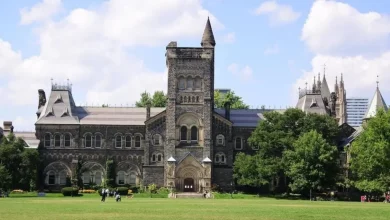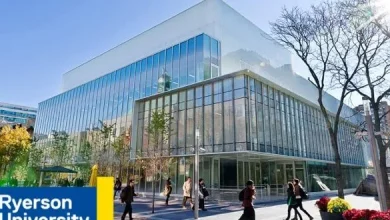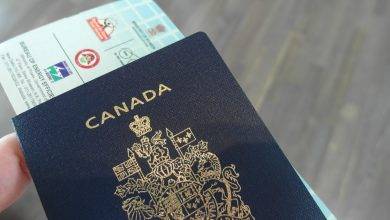Canada, known for its high quality of life and multiculturalism, attracts thousands of newcomers every year. One of the first and most crucial steps in settling in Canada is finding suitable accommodations. This guide provides insights and tips to help newcomers find the right place to live.
Types of Accommodations in Canada
- Rental Apartments: These are the most common form of housing for newcomers. Apartments range from studio units to multi-bedroom units and can be found in urban areas and suburbs. Rental costs vary widely depending on the location, size, and amenities of the apartment.
- Houses: Renting a house is another option for families or those who prefer more space. Houses are available in various sizes, from small bungalows to larger multi-bedroom homes, often with a yard.
- Condominiums (Condos): Condos offer a mix of apartment living with additional amenities like gyms, pools, and security. While condos can be more expensive than rental apartments, they provide a luxurious lifestyle for those who can afford it.
- Shared Accommodation: Many newcomers, especially students or young professionals, opt for shared accommodations. This can involve renting a room in a house or apartment with other individuals. It’s a more affordable option and can also help in building social connections.
- Short-term Rentals and Temporary Housing: Newcomers often need temporary accommodations when they first arrive. Options include Airbnb, hotels, or hostels, which can provide a place to stay while searching for a permanent home.
Steps to Find Accommodations in Canada
1. Determine Your Budget
Before starting your housing search, establish a budget. Rental prices in Canada vary depending on the city and neighborhood. For instance, rental costs in Toronto or Vancouver can be significantly higher than in smaller cities like Halifax or Winnipeg.
2. Choose Your Location
Your choice of location should be based on factors like proximity to work, access to public transportation, schools (if you have children), and the general safety and vibe of the neighborhood.
Some of the popular cities for newcomers include:
- Toronto: A vibrant, multicultural city with a wide range of housing options but with a higher cost of living.
- Vancouver: Known for its stunning natural beauty but also has one of the highest rental markets in the country.
- Montreal: Offers a European feel and is more affordable than other major cities, but French is the dominant language.
- Calgary and Edmonton: Known for affordable housing and job opportunities in industries like oil and gas.
- Ottawa: The capital city, with a balance of urban life and green spaces, also offers relatively affordable housing.
3. Use Online Platforms
There are various online platforms to help you find accommodation. Some of the most popular include:
- Kijiji: A classified ad site where you can find rental listings.
- Realtor.ca: A comprehensive site for finding houses, apartments, and condos for rent or sale.
- Rentals.ca: A platform for finding rental apartments, houses, and condos across Canada.
- PadMapper: Helps visualize rental listings on a map to find accommodations in your desired neighborhood.
4. Understand the Rental Process
When you find a potential rental, you’ll typically be required to provide:
- A rental application: Includes personal details, employment information, and references.
- Proof of income: Pay stubs or a letter from your employer.
- A security deposit: Typically equal to one month’s rent.
- Credit check: Landlords often require a credit check, which can be challenging for newcomers without a credit history in Canada. Some landlords may accept alternative references like a letter of employment or a guarantor.
5. Consider Renting from a Property Management Company
Some newcomers prefer renting from property management companies as they offer more security, maintenance services, and consistent policies. Well-known property management companies in Canada include CAPREIT, MetCap Living, and Timbercreek Communities.
Tips for Newcomers
- Start your search early: Housing markets in major cities can be competitive. Begin your search a few months before your planned move-in date.
- Beware of scams: Be cautious of rental scams. Never send money before viewing the property, and always meet the landlord or property manager in person.
- Consider accessibility: Look for accommodations near public transport, especially if you do not plan on owning a car initially.
- Inspect the property: Make sure to visit and inspect the property for any damages or issues before signing the lease.
FAQs
How much does it cost to rent an apartment in Canada?
Rental prices vary widely based on the city and neighborhood. In major cities like Toronto and Vancouver, expect to pay anywhere from $1,500 to $3,000 CAD per month for a one-bedroom apartment. In smaller cities, rent may range from $800 to $1,500 CAD per month.
Can I rent an apartment in Canada without a credit history?
Yes, it is possible to rent an apartment without a Canadian credit history. Some landlords may accept proof of employment, and references, or require a guarantor to sign the lease with you.
What is a security deposit, and is it refundable?
A security deposit is a sum of money (usually equivalent to one month’s rent) that landlords collect as insurance against any potential damage to the rental property. It is refundable, provided there is no damage or unpaid rent when you move out.
Is renters’ insurance mandatory in Canada?
Renters’ insurance is not mandatory by law in Canada, but some landlords may require it as part of the lease agreement. Renters’ insurance typically covers personal belongings, liability, and additional living expenses in case of an emergency.
Can I break my lease if I need to move out early?
In Canada, breaking a lease early can have legal and financial implications. However, you may be able to negotiate with your landlord, sublet the apartment, or find someone to take over the lease. Be sure to check your lease agreement for specific conditions
Related Article: How To Apply For An Emergency Canadian Passport?
Conclusion
Finding accommodation in Canada as a newcomer can be challenging, but with the right preparation and resources, you can secure a comfortable place to call home. Make sure to explore different options, consider your budget, and choose a location that meets your needs. Remember, settling in a new country takes time, and finding the right accommodation is a key step in building your new life in Canada.






